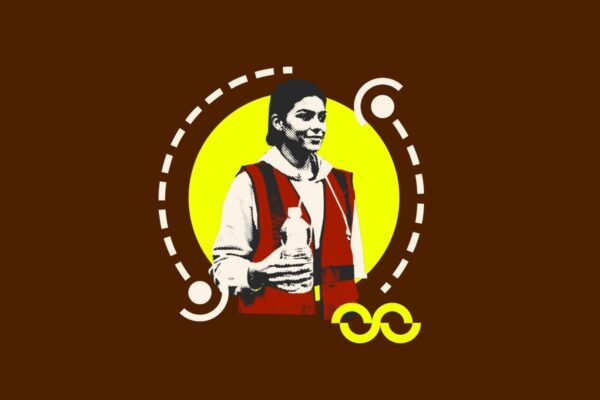The 24/7 nature of policing has had a significant influence on their perceived legitimacy as a first response. When we need support at any stage, or we find ourselves in situations of distress, why is there only one available option after office hours? How many of these moments really warrant a law enforcement response? Why are the police the only public agency designed and funded to respond 24/7?
The chronic underfunding of essential community, social and health services has left our communities with very limited options in times of need. If social service hours were extended to accurately reflect the lived reality of communities, the need for an emergency response would be significantly reduced, while providing appropriate and culturally safe preventative care. In Australia, we have seen organisations take a proactive response to caring for community and the results have been overwhelmingly positive.
The Night Place, launched in September 2024 by the Marra Worra Worra Aboriginal Corporation, operates nightly in the Kimberley town. In the first seven months, nearly 400 young people attended the space, with over 8,000 visits and 12,500 hot meals served.1 The Night Place offers young people a safe space when they have nowhere else to go, reducing interactions with police, reducing harm and lowering incidents of youth crime. Solutions like the Night Place offer diverse services to meet the diverse needs of young people including but not limited to, dinner, first aid, structured activities and transport home. When our first responder models reflect the diversity of our communities we are showing up in the right way, with the right person and the right response.
Another example of alternative responses to police is the Urgent Mental Health Care Centre (UMHCC) in Adelaide. The UMHCC demonstrates the importance and effectiveness of alternative first responses, especially in cases of mental distress. The UMHCC is one of the few support centres in Australia that is open 24/7 and provides personalised care for the immediate needs of individuals experiencing mental ill health as well as the development of a long-term support plan. Drawing from leading international research, this critical service supports people in need with a safe and inclusive approach, preferencing and promoting peer-supported mental health support whilst having the availability of clinicians.2
Recent studies by The Conversation found that people experiencing emotional distress and mental health challenges would prefer, wherever possible, a response without police attending at all.3 The Alternative First Responders campaign reiterates this sentiment, emphasising the importance of designing alternative responder models that respond to a diverse range of social and health incidents and do not rely on, or involve the police. There is a wealth of research and practical examples of how and why we must offer alternative responses separate to the police. Not only to do they benefit the individual and the community effected, they also support the wider ecosystem of community-based services including housing, disability support, family violence and emergency services by providing continual and full-circle care.
Imagine if the 000 service provided access to a complete and robust ecosystem of alternative responders to address critical need and emergency. Where we allow for a larger system of support, the 24/7 mandate will cease to remain solely with police. The call for these changes are not new, in 1999 the Social Services Report, Open All Hours, proposed the urgent and necessary extension of out-of-office hours for essential social services in response to public expectation.4
In America, the move to expand the scope of 911 calls to provide greater access to appropriate care has been widely supported. ‘Transforming 911’ encompasses the importance and common-sense solution of providing a system that taps into and provides “a more robust and relevant ecosystem including, but not defaulting to police.”5 When our emergency service moves away from a default police response, callers are met with options that offer appropriate and immediate round the clock care. “The most important elements of the field responder ecosystem are that they are both responsive to community needs and tailored to those experiencing the emergency”.6
The more we dive into this question and unpack the effectiveness of the solutions, it becomes increasingly puzzling that an alternative response has yet to be integrated into Australia’s national approach to community care and safety. This is not just a cultural issue – it’s a lack of courageous policy from our government. Essential social services continue to be underfunded and understaffed, making it impossible to operate around the clock – alternative responder programs remain limited by short term funding – and despite evidence-based policy recommendations from government-initiated enquiries, they continually fail to follow through.
Alternative first responders urgently needs increased funding to support the infrastructure required to provide 24/7 response services that advocate for the wellbeing of individuals and communities and moves away from a police-first response. Alternative first responders is not just about rattling the cage, its not a radical idea, alternative first responders is just common sense.
References
- Burke, K., 2025. Fitzroy Crossing’s ‘The Night Place’ offers sanctuary and reduces youth crime, say locals. ABC News [online]
- Urgent Mental Health Care Centre, 2025. Urgent Mental Health Care Centre. [online]
- Kisely, S., 2024. Police aren’t properly trained for mental health crises, but they’re often the first responders. Here’s what works better. The Conversation [online]
- Community Care, 2003. Calling time on 9 to 5. [online]
- University of Chicago, 2023. Chapter 7: Response. Transform911 [online]
- University of Chicago, 2023. Chapter 7: Response. Transform911 [online]


